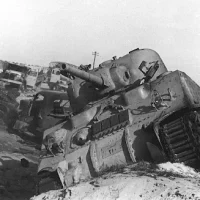As a result of Anwar Sadat’s growing authoritarianism and treatment of his opposition, tensions in Egypt began rising shortly after the Camp David Accords were signed. Regular Egyptians were unsatisfied with the treaty’s results in addition to the state of the economy. His own security people had become increasingly concerned, as Sadat did not like… Read More "The Assassination of Anwar Sadat, Part II"
The Assassination of Anwar Sadat, Part I
When Egyptian President Anwar El Sadat and Israeli Prime Minister Menachem Begin signed the Camp David Accords along with President Jimmy Carter in September 1978, it was hailed as a major breakthrough, a hard-won compromise that was meant to bring peace to the region and serve as a building block for an Israeli-Palestinian Peace. However,… Read More "The Assassination of Anwar Sadat, Part I"
The Birth of the Chemical Weapons Convention (and the OPCW)
Recent events in Syria have once again spotlighted the dangers of chemical weapons and international efforts to catalog and destroy them. The Convention on the Prohibition of the Development, Production, Stockpiling and Use of Chemical Weapons and on their Destruction (otherwise known as the Chemical Weapons Convention or CWC) was opened for signature with a… Read More "The Birth of the Chemical Weapons Convention (and the OPCW)"
A Gamble for Peace – Negotiating the Camp David Accords
Unrest in the Middle East has been an unrelenting problem for centuries, the Gordian knot that cannot be cut. The founding of Israel in May 1948 further complicated matters, leading to several wars and a state of heightened tension. While there have been many international efforts to find a lasting peace in the Middle East,… Read More "A Gamble for Peace – Negotiating the Camp David Accords"
The More Things Change – A Look Back at Syria’s Hafez al-Assad
“You know I have my ups and downs, but I have a pact with God. The pact is that no matter what problems I have, wherever there is a challenge, I will have all my strength,” asserted a sickly Hafez al-Assad to George Shultz, who grimaced at the firmness of Assad’s grip. Despite Hafez al-Assad’s… Read More "The More Things Change – A Look Back at Syria’s Hafez al-Assad"
Qaddafi – The Man and His Rise to Power
On September 1st, 1969 Muammar Qaddafi along with a group of officers part of the Free Officers Movement staged a bloodless coup d’état against King Idris I of Libya who at that time was in Greece undergoing medical treatment. The coup was staged in the city of Benghazi and was over within two hours. Qaddafi… Read More "Qaddafi – The Man and His Rise to Power"
Gamal Abdel Nasser was one of the most influential modern-day leaders in the Middle East. As part of the Free Officers Movement, he helped overthrow King Farouk I in 1952 [read about the U.S. embassy’s response to the 1952 Cairo riots] and began modernizing Egypt. He took a hard-line approach towards Western domination of Egypt… Read More "The Suez Crisis — And A Different Side of Nasser"
A Secret Betrayal — Kurdish Refugees in Iran
Between 1961 and 1975, the relationship between the Kurds and the Iraqi government was especially tumultuous. In 1961, the First Kurdish-Iraqi War, an attempt to create an independent Kurdish state in northern Iraq led by Mustafa Barzani, began and soon escalated into a full-fledged war. It ended in a stalemate in 1970 with some 100,000 people dead… Read More "A Secret Betrayal — Kurdish Refugees in Iran"
The 1958 U.S. Marine Invasion of Lebanon – It was no day at the beach
1958 — Lebanon was yet again at the forefront of foreign policy concerns. Gamal Abdel Nasser, one of the most prominent politicians of the postwar world, was powerful not only in Egypt, but also in much of the Arab World. Known for his Arab nationalism and sharp criticism of Western power, his influence reached many… Read More "The 1958 U.S. Marine Invasion of Lebanon – It was no day at the beach"
A Completely Lawless Place – Beirut and the Assassination of Ambassador Meloy and Robert Waring
The Lebanese Civil War was a 15-year conflict that took the lives of more than 130,000 people. Throughout the early 1970s, divisions between Christian Maronites and Palestinians began to deepen and soon escalated into all-out war. While the war was largely a struggle between these two groups, the violence soon affected the U.S. On June… Read More "A Completely Lawless Place – Beirut and the Assassination of Ambassador Meloy and Robert Waring"

